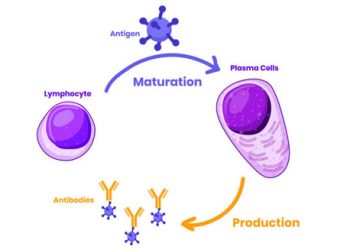Diagnosis of Chronic Pancreatitis
Diagnosis of chronic pancreatitis involves a combination of clinical evaluation, imaging, and laboratory tests. Since this pancreatitis progresses gradually and can mimic other gastrointestinal disorders, accurate diagnosis may be delayed, especially in early stages.
1. Medical History and Physical Examination
Doctors begin by reviewing symptoms, alcohol use, smoking, family history, and any prior episodes of acute pancreatitis. Physical examination may reveal upper abdominal tenderness or signs of malnutrition such as weight loss and muscle wasting.
2. Blood Tests | Diagnosis of Chronic Pancreatitis
Routine blood tests may show elevated levels of pancreatic enzymes (amylase and lipase), though these are often normal in chronic cases. Other tests assess liver function, blood sugar levels, calcium, and triglycerides.
3. Faecal Elastase Test
This stool test measures the amount of pancreatic enzyme elastase. Low levels indicate exocrine insufficiency, suggesting advanced disease.
4. Imaging Tests
- CT Scan: Reveals calcifications, ductal changes, and pancreatic atrophy.
- MRI or MRCP: Magnetic imaging offers detailed views of the pancreatic ducts and can identify narrowing, blockages, or cysts.
- Abdominal Ultrasound: May detect structural abnormalities, though less sensitive in detecting subtle changes.
- Endoscopic Ultrasound (EUS): A highly sensitive test that identifies early structural changes and fibrosis not visible on other scans.
5. Pancreatic Function Tests
These assess the ability of the pancreas to produce enzymes. Direct tests, such as secretin stimulation, are more accurate but less commonly used due to complexity.
6. Genetic Testing | Diagnosis of Chronic Pancreatitis
If hereditary pancreatitis is suspected, genetic testing for PRSS1, CFTR, and SPINK1 mutations may be performed, particularly in younger patients.
7. Biopsy (if needed)
A biopsy may be done if cancer is suspected or if imaging reveals suspicious masses. This helps distinguish chronic pancreatitis from pancreatic cancer.
Accurate diagnosis of chronic pancreatitis is crucial to guide treatment, prevent complications, and improve quality of life. Early intervention with enzyme replacement, pain control, and lifestyle modification can dramatically affect long-term outcomes.
[Next: Treatment of Chronic Pancreatitis →]


